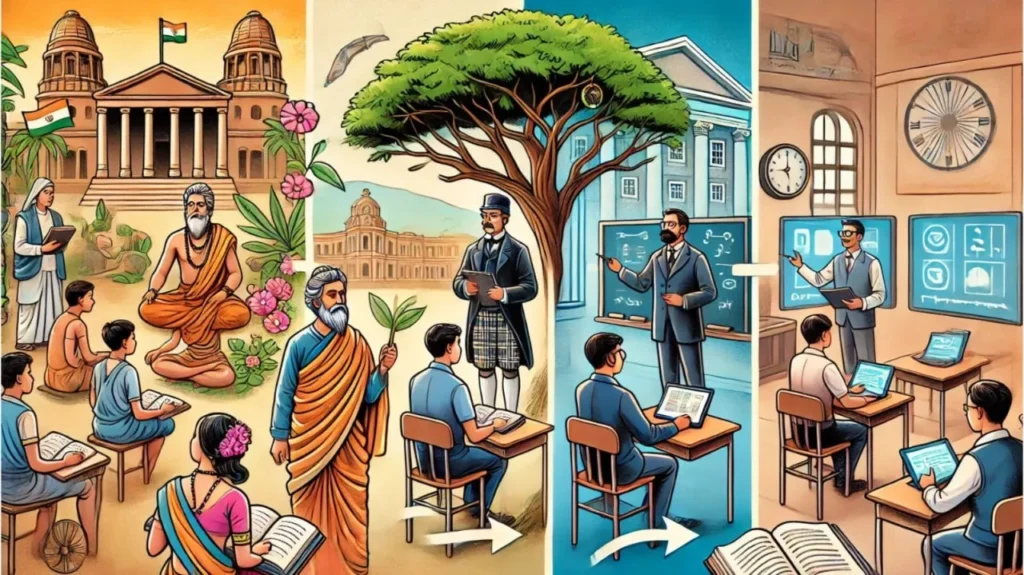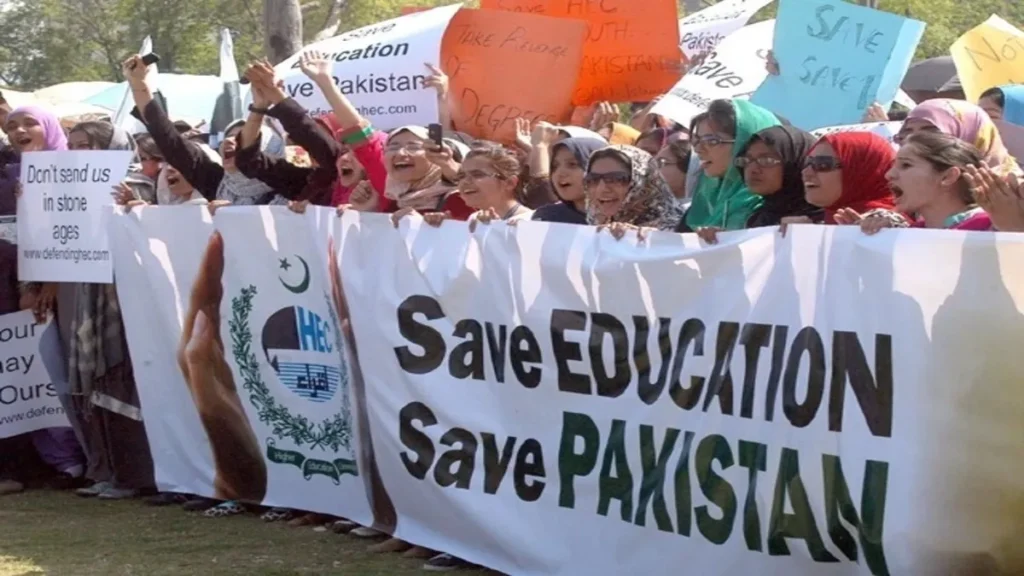Education is the key to a nation’s progress and prosperity, but unfortunately, Pakistan’s education system faces several significant challenges. Despite efforts to improve education across the country, educational issues in Pakistan remain prevalent. From inadequate infrastructure to poor teacher training, these challenges continue to hinder the development of the nation’s schooling system. In this blog, we will take a deep dive into the educational challenges in Pakistan, explore the state of the schooling system in Pakistan, and discuss the current status of teaching education in Pakistan.

Educational Issues in Pakistan: The Big Picture
The educational issues in Pakistan are vast and multifaceted. The primary concern is the lack of access to quality education, particularly in rural and underprivileged areas. Pakistan has one of the highest rates of out-of-school children in the world. According to reports, millions of children are not attending school, and many who do drop out early. This is due to factors such as poverty, cultural attitudes towards education, and the absence of adequate educational infrastructure.
Another major issue is the gender disparity in education. Girls, especially in rural areas, are often deprived of basic education due to societal norms, early marriages, and a lack of facilities for girls’ schooling. The challenge of ensuring equal access to education for all genders remains a persistent problem.
Furthermore, there is a stark divide between public and private schools. The schooling system in Pakistan is highly unequal, with private schools often providing better facilities and a higher standard of education, while public schools are plagued by overcrowded classrooms, outdated curricula, and undertrained staff. This inequality further deepens the gap between the rich and the poor, with children from affluent families benefiting from better educational opportunities, while those from poorer backgrounds are left behind.

Key Educational Challenges in Pakistan
1. Inadequate Infrastructure and Resources
One of the most pressing educational challenges in Pakistan is the lack of proper infrastructure and resources. Many schools, particularly in rural areas, lack basic facilities like clean water, electricity, and proper sanitation. Additionally, many classrooms are overcrowded, and students often have to study in poorly maintained buildings. These conditions make it difficult for students to focus on their studies and for teachers to provide quality education.
2. Teacher Training and Quality of Teaching
Another key issue in the schooling system in Pakistan is the quality of teaching. The level of teacher training is often subpar, and many teachers lack the skills and resources necessary to effectively teach their students. The teaching education in Pakistan needs urgent reforms to ensure that teachers are well-equipped to handle diverse classrooms and provide quality education. A lack of professional development opportunities for teachers also contributes to the low quality of education in many schools.
3. Curriculum Challenges
The curriculum used in Pakistan’s schools is often outdated and does not meet the needs of modern-day students. The focus is still largely on rote memorization rather than critical thinking, creativity, and problem-solving skills. This limits students’ ability to adapt to a rapidly changing world. Additionally, the curriculum is often not inclusive, with a lack of representation of diverse cultures, languages, and perspectives, particularly in the context of Pakistan’s multicultural society.
4. Language Barriers
In Pakistan, many students face language barriers in the classroom. The medium of instruction in many schools is English, yet most students come from backgrounds where their first language is Urdu or a regional language. This creates difficulties for students to fully understand and engage with the lessons, impacting their learning outcomes. A shift towards a more bilingual or multilingual educational system could help bridge this gap.
5. Government Policies and Budget Allocation
Despite several initiatives, the government’s investment in education has been insufficient to meet the growing demands of the education sector. The schooling system in Pakistan often suffers from poor governance and underfunding, which leads to ineffective policies and the underdevelopment of educational infrastructure. Inadequate budget allocation for the education sector further exacerbates the problem, making it difficult to improve conditions in schools.

The Way Forward: Addressing Educational Issues in Pakistan
To address these educational issues in Pakistan, a comprehensive and inclusive approach is required. Here are a few suggestions to improve the state of education in the country:
- Increase Investment in Education The government must significantly increase investment in education, focusing on building and maintaining schools, especially in rural areas. Improved infrastructure and resources, such as libraries, computers, and science labs, will create an environment conducive to learning.
- Teacher Training and Professional Development The quality of education in Pakistan can be vastly improved by investing in teaching education in Pakistan. Providing teachers with better training, modern teaching methodologies, and professional development opportunities will help them meet the needs of diverse students and improve teaching outcomes.
- Curriculum Reform Updating the curriculum to focus more on critical thinking, creativity, and practical skills, while also incorporating diverse cultural perspectives, can help make education more relevant to the needs of today’s world. A curriculum that promotes inclusivity and adapts to the digital age will help students develop the skills required for the future.
- Addressing Gender Disparities Efforts must be made to address the gender gap in education by providing scholarships, building girls’ schools, and creating awareness campaigns to change societal attitudes towards girls’ education. The government should also ensure that schools are safe and supportive spaces for girls.
- Focus on Rural Education Rural areas need particular attention in terms of building schools, improving transportation, and providing learning materials. Incentives for teachers to work in rural schools can also help ensure that children in these areas receive quality education.
Conclusion
The educational challenges in Pakistan are numerous and complex, but they are not insurmountable. By focusing on improving infrastructure, providing quality teacher training, and addressing gender disparities, Pakistan can begin to transform its schooling system into one that is inclusive, accessible, and capable of meeting the needs of the 21st century. With the right policies and a collective effort, the future of education in Pakistan can become brighter for all children, regardless of their socio-economic background.



안전과 신뢰로 만든 커뮤니티 토토라이브.